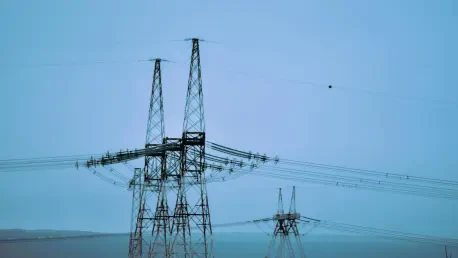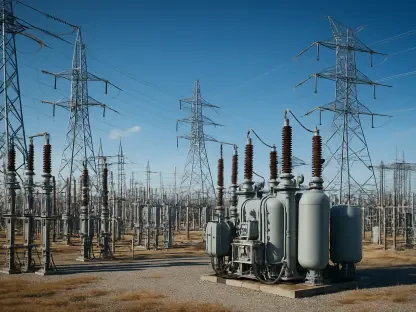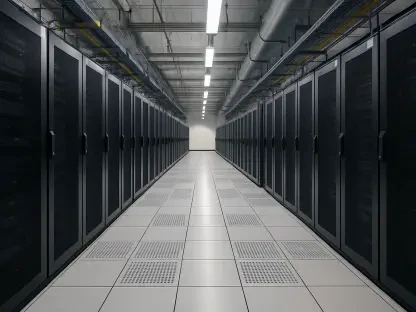Christopher Hailstone is renowned for his profound knowledge in energy management, renewable energy, electricity delivery, and grid reliability. As a seasoned expert, he offers valuable insights into the complexities of energy regulation, particularly within the Midcontinent Independent System Operator (MISO) framework. In this engaging interview, Christopher delves into the dynamics between market monitoring and transmission planning, the implications of MISO’s petition to FERC, and how various stakeholders perceive the roles of oversight and evaluation.
Can you explain the primary role of a market monitor in the context of regional transmission organizations like MISO?
A market monitor serves as an independent auditor evaluating the functioning of energy markets within regional transmission organizations (RTOs). Their primary role is to ensure fair market practices, prevent manipulation, and assess the efficiency of market operations. In organizations like MISO, the market monitor provides critical oversight that impacts overall grid reliability and the economics of electricity delivery.
What prompted MISO to file a petition with FERC regarding the scope of its market monitor’s duties?
MISO’s petition was driven by disputes over the independent market monitor’s involvement in transmission planning, which MISO views as outside the scope of its intended monitoring duties. Specifically, Potomac Economics criticized MISO’s transmission needs analysis, prompting MISO to seek clarification from FERC that such unsolicited activities are beyond the market monitor’s responsibilities.
How does Potomac Economics view the relationship between transmission planning and market oversight?
Potomac Economics sees transmission planning as inherently intertwined with market oversight, arguing that the planning decisions can significantly impact market operations and services. They maintain that it is impossible to separate transmission planning from market activities because changes in transmission can affect energy distribution and pricing.
Why do MISO’s transmission owners support limiting Potomac Economics’ role in transmission planning?
Transmission owners like Ameren and Duke Energy support limiting Potomac Economics’ role because they feel unsolicited monitoring exceeds the scope outlined in Potomac’s tariff. They argue that transmission planning is the responsibility of MISO, and compensation for unsolicited evaluation work is unwarranted.
What are the specific concerns raised by state utility regulators and ratepayer advocates about MISO’s petition?
State utility regulators and ratepayer advocates are concerned that restricting Potomac Economics’ oversight would compromise the integrity and transparency of transmission planning. They fear that such limitations could lead to unchecked decisions by MISO, potentially resulting in unfavorable market outcomes and higher costs for retail customers.
Why does MISO believe that unsolicited monitoring and evaluation activities should not be compensated?
MISO contends that unsolicited monitoring oversteps contractual boundaries under the market monitor’s tariff. From their perspective, only solicited work falls within the officially sanctioned duties, and therefore should be reimbursed. By not compensating unsolicited activities, MISO intends to affirm these boundaries.
What was the nature of the criticism from Potomac Economics regarding MISO’s Tranche 2.1 transmission portfolio?
Potomac Economics criticized MISO’s Tranche 2.1 transmission portfolio for exaggerating the grid’s transmission needs and the benefits projected from the proposed projects. They contended that MISO’s analysis overstated the necessity and economic justification for the portfolio’s investments.
How did MISO quantify the cost of Potomac Economics’ “unsolicited” monitoring and evaluation work?
MISO calculated that the unsolicited monitoring activities by Potomac Economics amounted to over 600 hours between 2023 and 2024, translating to a financial implication of approximately $300,000. This figure drove their contention that such activities should not receive compensation.
Why does MISO propose hiring a third party to monitor its long-range transmission planning?
MISO suggests engaging a third-party monitor to ensure impartiality and clearly delineated responsibilities in long-range transmission planning, separating it from the market monitor’s role. This is aimed at eliminating the ambiguity MISO associates with Potomac Economics’ unsolicited evaluations.
What is the stance of Americans for a Clean Energy Grid on MISO’s petition, and what concerns do they express?
Americans for a Clean Energy Grid support MISO’s petition, fearing that the market monitor’s authority could expand without a definitive FERC decision. They are concerned that extensive involvement in transmission could encroach on MISO’s planning responsibilities, potentially disrupting the balance of authority.
How does Potomac Economics justify its involvement in unsolicited transmission planning oversight under MISO’s tariff?
Potomac Economics argues that MISO’s tariff mandates their evaluation of all actions affecting its markets and services, including transmission planning. They believe there’s a clear directive within the tariff to oversee elements that have market ramifications.
What is the significance of FERC’s decision in impacting the market monitor’s scope of authority?
FERC’s decision will set a precedent regarding the scope of authority for market monitors, potentially redefining their involvement in transmission planning. It holds immense significance in determining whether or not the monitor can pursue unsolicited oversight, impacting grid planning transparency.
How many state utility commissions within MISO are concerned about limiting Potomac Economics’ monitoring activities?
Out of the 15 state utility commissions within MISO, ten have expressed concerns about restricting Potomac Economics’ monitoring activities. They collectively highlight the necessity of independent oversight in ensuring fair and accountable transmission planning.
What are the potential implications for retail customers if Potomac Economics is limited in its oversight activities?
Limiting Potomac Economics’ oversight activities may result in decisions that aren’t fully transparent or independently vetted, potentially leading to inefficient transmission investments. This could translate into higher energy costs and less reliable service for retail customers.
How do ratepayer advocates from states like Illinois view the importance of solicited versus unsolicited work by the IMM?
Ratepayer advocates emphasize the importance of unsolicited work by the IMM, believing that limiting the monitor to only solicited tasks undermines its independence and ability to provide unbiased market assessments. They argue that unsolicited evaluations are vital for a transparent and equitable energy market.
Why do groups like the Coalition of MISO Transmission Customers support Potomac Economics’ oversight of transmission planning?
These groups support Potomac Economics’ oversight, asserting that it is authorized by MISO’s tariff to monitor any actions affecting MISO markets, including transmission planning. They regard the monitor’s involvement as essential to ensuring that planning activities benefit consumers and uphold market integrity.
Do you have any advice for our readers?
For anyone interested in energy regulation or market oversight, I’d suggest keeping abreast of developments in grid management and understanding the evolving nature of market dynamics. Engage with the broader conversation on sustainability and regulatory measures that can ensure both resilience and efficiency in energy delivery.









